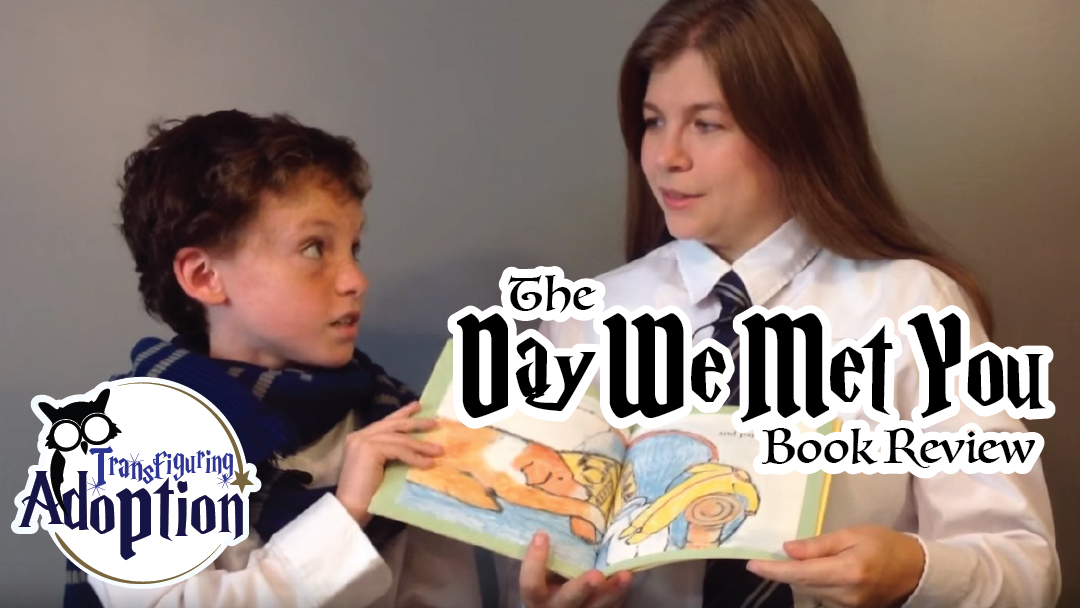Discussion Guide:
- Hamilton gets upset when he first tries to enroll in college in the US saying, “He looked at me like I was stupid. I am NOT stupid.” Have you ever had someone look at you or treat you like you were less because of who you are or your background? How did it make you feel?
Caregiver Note: Often when children have a background of being in the foster care system they might feel like their peers and others judge them based on their past. It’s likely they will empathize with Hamilton here and feel that he had a right to be angry. Just as Hamilton valued his intelligence above most other qualities, hearing your children’s response to this question might give you some insight to the things they value about themselves and in which areas they feel misjudged. - When Hamilton first meets Burr and then the others he tells them “I’ve never had a group of friends before- I promise I’ll make you proud”. How do you think this affects his choices?
Caregiver Note: Often when children have been through foster care, they have changed living situations at least once, sometimes frequently. This can make it extremely difficult to make friends. Because of this they may not understand who to trust and may easily fall in with the wrong crowd- craving acceptance they may accept it the wrong places, whether that’s in friendships or romantic relationships. In Hamilton’s case it worked out, though one of these ‘friends’ he makes upon his arrival in NY (Burr) ends up later being the one who killed him. Talk with children about how to read social cues and how to know if and when someone should be trusted so that thy might make good decisions in choosing their relationships. - When they first start plotting the revolution Hamilton realizes he’s been talking loudly, and it may not be the best strategy. He apologizes saying, “Sometimes I get over excited and shoot off at the mouth”. What does he mean by this? How does Hamilton’s ‘shooting off at the mouth’ help or hurt his cause? Have you ever experienced something similar?
Caregiver Note: One of the lingering effects of trauma can be poor impulse control. When you live your life in a constant state of ‘fight or flight’ making a quick choice of what do to without taking the time to think it through can literally mean the difference between life and death. However, when the circumstances aren’t so dire, it can be of great benefit to think decisions through more carefully. This can be a place to start a conversation about when to act first and when to think things through first and the benefits of doing so. Talk about the ways Hamilton’s impulsivity helped or hindered him in different situations. - Hamilton frequently says, “There’s a million things I haven’t done, but just you wait!” What would you put on your list of things you’d like to do?
Caregiver Note: It can often be hard for children who have been through trauma to think about the future. As with the previous question, when living every moment as ‘fight-or-flight’ and trying to survive one day to the next it doesn’t leave much room for thinking about what their life might look like far into the future. Together, talk about things they might like to see or do and make a ‘bucket list’. This can range from serious life milestones (going to college, getting married, etc.) to fun things (seeing a play on Broadway, going to the beach, skydiving). It’s important to get kids thinking about the future and what it might hold for them so that they can being to plan for the kind of life they want to have. This activity can be a lowkey way to do that. - When we meet the Schuyler sisters, Angelica and Eliza talk about the opportunities that the revolution will bring them, while Peggy is sad and worried about the violence that she expects is coming. Why do you think they feel these different ways? Which view do you think you’d have?
Caregiver Note: Both of these points of view are valid- a revolution will bring opportunities and also violence. Hearing what your child thinks about these different opinions may give you some insight into what they value or fear. If a child has grown up with a lot of violence in their life, they might relate more to Peggy’s worries. However, they may also understand and relate to the ideals of wanting things to get better and knowing a revolution will help with that. - Burr says, “I am the one thing in life I can control.” What do you think he means by this? Do you agree?
Caregiver Note: Psychologists will say that all anxieties can be boiled down to ‘fear of loss of control’ in some capacity. Children in foster care will often feel like they don’t have any say in their own lives and no control over where or with whom they live. They likely will agree with Burr’s statement that everything around them feels out of control. But it’s important to talk about how we can’t control the actions of others- all we can do is control our own actions. This can be a time to talk about strategies for coping with anxiety when everything feels out of control- such as meditation/mindfulness, grounding exercises, etc. - George Washington seems to almost be a sort of ‘father figure’ to Hamilton. However, in one scene we see Hamilton get increasingly angry as Washington continually calls him ‘son’, shouting, “Don’t call me son!” and “You’re not my father”. Why do you think Hamilton feels so strongly about this?
Caregiver Note: Terms of endearment like ‘son’ might seem like a casual thing to some people, but for those who have ever lost a parent (whether through death, adoption, etc.) deciding how and when to give names to relationships carries a lot of weight. Deciding to call someone other than a biological parent ‘mom’ or ‘dad’ is a really big decision. Everyone gets there in their own way and time, and it’s not an issue that should be forced or decided by anyone except the child themselves. While Hamilton may think of Washington as a father-figure, being called son by him is likely also a painful reminder of what he is missing from his own biological father. Children will likely have varying degrees of opinions here depending largely on their relationships with their own biological and foster/adoptive parents. Some might like being referred to as your child, rather than foster child, but some might take offense at this because, like Washington, you aren’t their biological mother/father. It’s important to have discussions about this when a child comes into your home regarding how they’d like to be referred to, and to make sure you respect whatever their choice might be. - Activity: Letter Writing
Caregiver Note: Alexander Hamilton is known for his writing abilities and in the show he claims that in many ways he ‘wrote his way out’ of various situations. Educating himself and honing his writing craft helped him get to America and into a good college. He wrote defenses of the constitution in The Federalist Papers, and even his romance with his wife Eliza was largely through letter writing. Writing can be a very cathartic coping mechanism and there was a time when that was the main way of communicating. Have children pretend they don’t have access to the internet/phones/etc. and have them write a letter to a friend or family member. If they don’t feel comfortable with actually sending letters to a person, give them the option to write the letters as a journal, something not meant to be sent to anyone. - From the point they meet it’s obvious that Hamilton and Burr have very different life strategies. Burr says to “talk less, smile more. Don’t let them know what you’re against or what you’re for.” On the other hand, we have Hamilton who says, “If you stand for nothing, what will you fall for?” Burr frequently changes sides to whatever best fits with his current goals, whereas Hamilton lives and dies by his beliefs. Because of this he even chooses to back Jefferson (who he claims to hate) in the election rather than Burr because “at least he has beliefs”. Who do you think has the better strategy? Which one do you think you’re more like?
Caregiver Note: As Hamilton is the hero of the story, we are meant to take his side in this argument, and many will. However, there are valid points to both of their strategies. Children might relate to either one of the characters, which can give you insight into the way they think and their behavior. Burr’s approach can be a defense mechanism- if you don’t let anyone know how you really feel, it’s harder for them to hurt you. Sometimes if you sit back and watch and don’t speak your mind, then you can blend into the background which might feel safer. On the other hand, some children who have experienced abuse may have very developed sense of ‘right’ and ‘wrong and be very outspoken about defending their beliefs and ‘fighting back’ when someone disagrees. There is a time and a place for both approaches. - All during the show Hamilton states that he’s “not throwing away my shot” and yet in the end when it comes down to it in his duel with Burr he does exactly that- he aims for the sky rather than Burr. Why did he choose to do this?
Caregiver Note: Hamilton follows the same advice he gave his son for his duel- to aim for the sky. There’s no right or wrong answer here, as historical scholars still debate this point to this day (as well as if he really did aim for the sky or not). But it could lead to an interesting discussion of why he might have made the choices he did in the end, and the differences between literally and figuratively taking or throwing away his shot.
[Donate to this Project]
About the Author: Jenn Ehlers
Jenn is a central Virginia native who received her BA in Psychology from the University of Virginia in 2012. Since then she has worked for a local mental health agency and the Department of Social Services in various capacities and has been involved in her community’s efforts to create a Trauma Informed Network. Currently Jenn works in vocational rehab and mentors youth in foster care. When she isn’t working, Jenn enjoys writing stories, anything and everything Harry Potter, and spending time with her niece and nephew.
**Transfiguring Adoption is a nonprofit organization seeking to nurture growth in foster and adoptive families by giving a HOOT about their families. Transfiguring Adoption does not intend for its reviewers nor its review to be professional, medical or legal advice. These reviews and discussion guides are intended to help parents to better be able to connect and understand their children who come from traumatic backgrounds.

